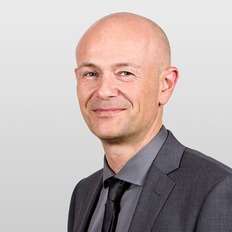In times of change characterized by continuous transformation processes, leaders are increasingly faced with the need to continuously develop themselves in order to meet ever-growing demands. Developing future-relevant competencies is crucial. By developing leaders along their development journey, organizations can ensure they are prepared for the challenges of the future while simultaneously strengthening their competitiveness.
When we accompany companies and their leaders on their development journey, our "diagnostics" and "development" service areas converge. In initial discussions, our consultants discuss the background and objectives of the respective journey with the client: Do managers find it difficult to delegate responsibility to their employees? Is agile leadership an issue? Should traditional (possibly conservative) structures be broken down in order to remain attractive to employees in the future? Are new markets being entered, requiring internal transformation management?
Would you like to share thoughts and ideas on leadership development? Or talk to us without obligation about upcoming transformations in your company?
We accompany our clients individually in their personal development as part of a Development JourneyBut what might such a development journey look like?
In detail: Development Journey Step by Step
In individual discussions or workshops with the board and managers of a company, we analyze, which values and behaviors are particularly importantWe discuss our first draft with the client and then supplement, review, and finalize the mission statement.
The contents of a mission statement can be, for example:
“We want to work together cooperatively and on equal terms.”
“We are ready to delegate responsibility to our employees”
“We deal with mistakes openly and constructively and learn from them.”
After this phase, we know in which direction a company wants to change and which skills managers should have in order to implement this successfully.
In the second step, we ask to what extent values and behaviors are already being practiced. For this purpose, managers complete our Development Center. Role plays, self-reflection phases, individual discussions and Feedback rounds we find out how many of the acquired competencies the participants already fulfill.
After evaluating the results, we can examine the strengths and potential for improvement of individual managers as well as those of the company as a whole. We derive learning areas and measures that will be incorporated into subsequent training programs.
Now we enter the decisive phase: In our individually tailored trainings, one-on-one coaching sessions, and group sessions, participants explore their leadership philosophy as well as their own strengths and development potential. Often, the focus here is on topics such as conflict management, motivation and leadership, or intercultural skills – however, the decisive factor for the focus is the preceding diagnostic assessment.
To achieve the most sustainable effect possible, we usually implement our measures over an extended period of time. This allows us to provide feedback on the impact of the measures during the process and, if necessary, adjust units.
For us, it's the most rewarding confirmation when leaders, after completing the development phase, approach the upcoming transformation processes with strength, positivity, and clarity. Our example case demonstrates what meaningful development can entail. Leading from a distance.

